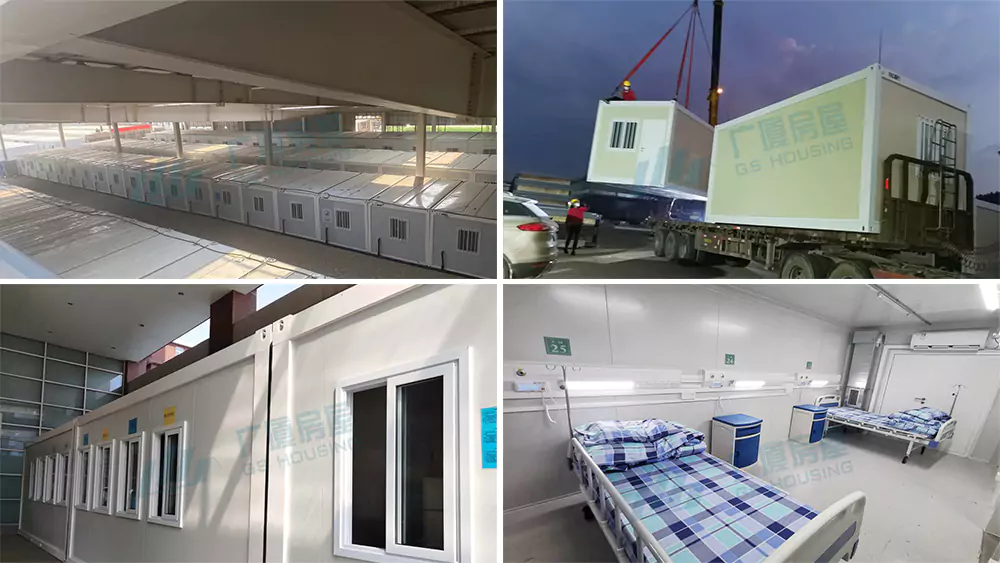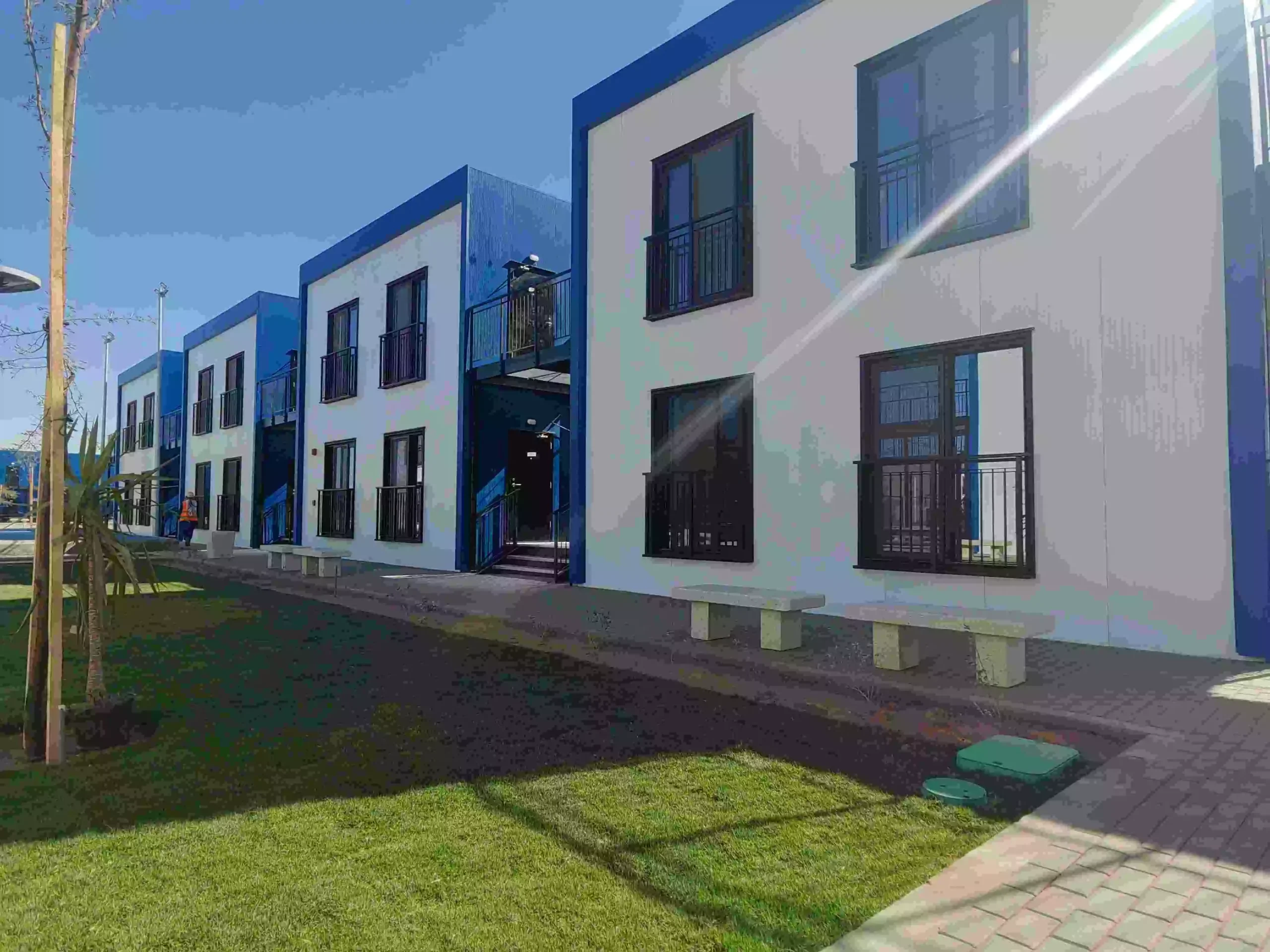Post-War Ukraine: China’s Role in Providing Rapid and Cost-Effective Housing Solutions
Post-War Ukraine: China’s Role in Providing Rapid and Cost-Effective Housing Solutions
The Russian-Ukrainian war has left Ukraine facing immense rebuilding hurdles. Housing stands out as a major issue. Millions of people have been forced from their homes. The destruction of buildings has caused losses estimated at over $135 billion. This widespread damage calls for urgent and creative solutions. These solutions must provide shelter quickly and support long-term recovery.
Conventional building techniques take too long and demand too many resources. They fail to meet the pressing needs of displaced individuals. Modular housing offers a practical alternative. This includes modular, prefabricated, and temporary structures. These options enable fast setup and adaptable use. They are perfect for delivering immediate refuge and aiding essential services during rebuilding.
The Unique Value and Potential of Modular Housing
Modular housing, despite its name, provides a sensible and effective way to meet urgent shelter needs in emergencies. These structures aren’t meant to be thrown away soon after use. Instead, they are built for quick assembly and deployment. Their modular nature allows factory pre-construction. This cuts down on-site building time significantly. Speed is vital in post-war Ukraine. The need for shelter is urgent.
Swift Action for Critical Needs
Fast housing deployment is essential. Millions are displaced and facing tough winters. Immediate access to warm shelter can be a matter of life or death. Modular homes with basic insulation and heating can be set up in days. They offer a vital lifeline to those who’ve lost everything. Traditional methods can’t match this speed. Modular housing becomes a crucial tool.
Affordability and Versatility
Modular housing brings clear financial benefits. Prefabricated units from China can cost just a third of standard homes. This makes them appealing to Ukraine’s government and aid groups with tight budgets. Plus, these homes are highly versatile. They can serve as residences, offices, or other spaces. They can even be taken apart and moved as rebuilding advances. This flexibility ensures resources are used wisely and can adapt to changing needs.
Suitability for Different Conditions
Ukraine’s varied climate and terrain require adaptable housing. Disposable units can be customized for regional needs. Think extra insulation for cold eastern winters or solar panels for energy savings in the south. Their light design makes transport easy. This allows quick setup even in remote, damaged areas. Such adaptability effectively addresses Ukraine’s diverse rebuilding challenges.
Market Growth and Economic Boost
Demand for modular housing in Ukraine is set to rise sharply. Experts predict the temporary housing market could hit billions in value over the next five years. This surge will lift related sectors like materials, transport, and installation services. It will breathe new life into the global construction industry.
China’s Advantages in Modular Housing Construction
Chinese firms are ready to lead in Ukraine’s rebuilding, especially in modular housing. Their strengths in technology, production scale, and global project experience lay a strong foundation for success.
Top-Tier Modular Building Technology
China leads the world in prefabricated construction. It has a full supply chain and advanced technical know-how. Chinese companies have worked well in emergency projects globally. The homes are fast to build and can include features like quake-proofing insulation, and smart tech. Advances in light steel, eco-friendly materials, and quick assembly improve both usability and comfort.
Exceptional Output Capacity
China’s massive production network for building materials ensures it can handle big orders efficiently and cheaply. This ability is key for Ukraine’s urgent housing needs. Chinese plants can churn out thousands of modular units in weeks. They can ship them to Ukraine by sea or land. This “Chinese efficiency” delivers timely aid and boosts the global standing of Chinese firms.
Extensive Global Project Experience
Chinese companies have tackled infrastructure projects across Belt and Road nations. They’ve honed skills in crisis response and tough settings. For instance, they’ve supplied temporary homes and clinics after disasters in Africa and floods in Southeast Asia. This background is priceless for Ukraine’s recovery. It helps with international teamwork and swift project rollout.
Specific Roles of Chinese Firms
Chinese companies can make a big impact on Ukraine’s modular housing market through targeted efforts:
Tailored Designs
Creating varied modular homes suited to Ukraine’s climates and cultures is vital. This means blending local styles, using nearby materials when feasible, and meeting residents’ needs.
Global Partnerships
Working with groups like the UN and EU can tap into aid funds to speed up projects. This involves bidding on global contracts, teaming up with local and international NGOs, and meeting worldwide standards.
Supporting Eco-Friendly Recovery
Offering energy-efficient and green housing designs aids Ukraine’s sustainable growth. This includes using eco-conscious materials, adding efficient appliances, and reducing environmental impact.
Full-Service Support
Providing end-to-end services ensures smooth delivery. This covers design, manufacturing, quality checks, shipping, setup, and ongoing support. Training local workers in assembly and upkeep also builds skills and jobs.
Tech Advances and Adjustments
Constantly improving modular tech to fit Ukraine’s changing needs boosts effectiveness. This involves new materials, better building methods, and smart tech for added comfort and efficiency.
GS Housing: A Leader in Modular Building
Founded in 2001, GS Housing is a high-tech firm focused on modular structures. With 100 million RMB in capital, it designs, produces, sells, and builds products like flat-pack containers, prefab homes, modular units, steel structures, light steel villas, and MIC systems. These serve needs from worker camps to refugee shelters, schools, hospitals, and hotels.
Worldwide Presence and Expertise
GS Housing operates globally, with projects spanning multiple continents and disaster scenarios. The company’s proven strength in large-scale post-disaster resettlement construction is exemplified by its track record: COVID-19 emergency quarantine facilities, post-Wenchuan earthquake transitional housing in China, modular camps for Saudi Arabia’s NEOM megaproject, and even the barracks deployed for China’s 70th National Day military parade. This expertise extends to critical infrastructure such as worker housing in Russia’s Arctic LNG projects and refugee shelters across conflict zones. Such diversified global experience positions GS Housing as a strategic partner for Ukraine’s reconstruction era.
Output and Innovation
With five factories, GS Housing can produce over 170,000 container homes yearly. It uses advanced tools like CNC cutting and bending machines. Its R&D team develops safe, green, and smart building options.
Commitment to Sustainability
GS Housing prioritizes eco-friendly practices. It follows zero-waste policies, promotes recyclable products, and cuts energy use. It also works to protect biodiversity and manage supply chains sustainably.
Opportunities and Obstacles
Ukraine’s rebuilding offers big potential for Chinese firms, but challenges remain.
Political Risks
Ongoing conflict and instability in Ukraine threaten investments and projects. Chinese firms must assess and manage these risks carefully.
Transport Challenges
Damaged roads and supply chain issues can slow material delivery. Close coordination with local and global partners is needed to address this.
Economic Constraints
Post-war Ukraine’s finances may limit project funding. Chinese firms must provide affordable options and explore creative financing.
Legal Complexities
Ukraine’s rules and laws can be tricky to navigate. Chinese companies must ensure full compliance.
Conclusion: A Shared Global Duty
Rebuilding Ukraine is a major humanitarian and economic task. The modular housing market is a key starting point. With their tech skills, production power, and global experience, Chinese firms can improve Ukrainian lives tangibly. From rapid shelters to future infrastructure, “Chinese strength” can leave a lasting mark on Ukraine’s recovery.
This isn’t just a business chance. It’s an opportunity to show China’s global duty. By focusing on speed, innovation, and teamwork, China can aid Ukraine’s renewal and solidify its role in the world construction sector. This means delivering top-notch housing, boosting local economies, and promoting green practices. In doing so, China helps Ukraine recover and sets an example for future global post-conflict efforts.
FAQS
Q: What are modular homes?
A: Modular homes are prebuilt residences created in segments or units off-site. These segments are then moved to the chosen site for assembly. They are constructed with uniform parts.
Q: Are modular homes well-made?
A: Yes, modular homes are recognized for their excellent craftsmanship. The units are produced in a regulated factory setting. This ensures accuracy and compliance with tough quality benchmarks.
Q: Can modular homes be personalized?
A: Yes, modular homes allow for extensive customization. Although they use standardized pieces, their design and arrangement can be adjusted. This meets specific tastes and needs.








